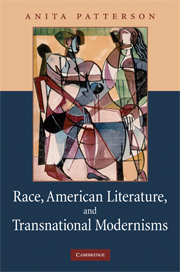Book contents
- Frontmatter
- Contents
- Acknowledgments
- Introduction. Towards a comparative American poetics
- Chapter 1 Transnational topographies in Poe, Eliot and St.-John Perse
- Chapter 2 Hybridity and the New World: Laforgue, Eliot and the Whitmanian poetics of the frontier
- Chapter 3 From Harlem to Haiti: Langston Hughes, Jacques Roumain and the avant-gardes
- Chapter 4 Signifying modernism in Wilson Harris's Eternity to Season
- Chapter 5 Beyond apprenticeship: Derek Walcott's passage to the Americas
- Epilogue
- Notes
- Bibliography
- Index
Chapter 1 - Transnational topographies in Poe, Eliot and St.-John Perse
Published online by Cambridge University Press: 22 September 2009
- Frontmatter
- Contents
- Acknowledgments
- Introduction. Towards a comparative American poetics
- Chapter 1 Transnational topographies in Poe, Eliot and St.-John Perse
- Chapter 2 Hybridity and the New World: Laforgue, Eliot and the Whitmanian poetics of the frontier
- Chapter 3 From Harlem to Haiti: Langston Hughes, Jacques Roumain and the avant-gardes
- Chapter 4 Signifying modernism in Wilson Harris's Eternity to Season
- Chapter 5 Beyond apprenticeship: Derek Walcott's passage to the Americas
- Epilogue
- Notes
- Bibliography
- Index
Summary
ELIOT, POE AND THE ENIGMA OF NATIONALITY
Weighing the importance of Poe's style for his own coming of age as a poet, in a 1948 lecture Eliot presented Poe as something of an enigma. “One cannot be sure that one's own writing has not been influenced by Poe,” he said; “I can name positively certain poets whose work has influenced me, I can name others whose work, I am sure, has not; there may be still others of whose influence I am unaware, but whose influence I might be brought to acknowledge; but about Poe I shall never be sure.” Contrasting with this perceptible uncertainty in “From Poe to Valéry,” in a previously aired BBC broadcast Eliot remarked upon Poe's enduring power in terms that were far more unequivocal. “Poe chooses to appear, not as a man inspired to utter at white-heat, and not as having any ethical or intellectual purpose, but as the craftsman,” he observed; “His poetry is original … ; he has the integrity not to attempt … to do anything that any other poet has already done. And … his poetry is significant: it alters the Romantic Movement, and looks forward to a later phase of it. Once his poems have become part of your experience, they are never dislodged.”
There are many reasons Poe's body of work would have had a persistent but ambiguous appeal for Eliot over the course of his lifetime.
- Type
- Chapter
- Information
- Publisher: Cambridge University PressPrint publication year: 2008



